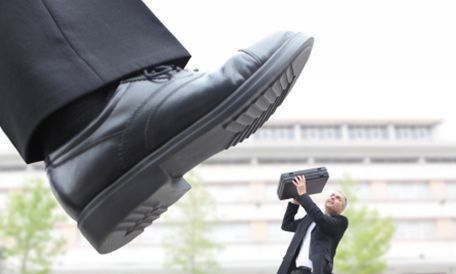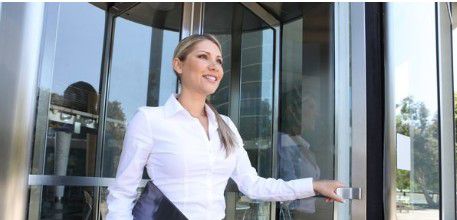中华人民共和国残疾人保障法(二)
|
Article 25 The State shall systematically set up various forms of normal schools and specialties for special education at different levels and special education classes (departments) attached to ordinary normal schools to educate and train teaching staff for special education. Ordinary normal schools shall offer courses or lectures on special education so that teachers in ordinary education may have some necessary knowledge of special education. Teachers of special education and sign language interpreters shall enjoy allowances for special education. Article 26 Governmental departments concerned shall organize and support the research and application of braille and sign language, the compilation, writing and publication of special education teaching materials and the research, production and supply of teaching apparatus and other auxiliary facilities for special education. Chapter IV Employment Article 27 The State shall guarantee disabled persons' right to work. People's governments at various levels shall formulate overall plans for employment of disabled persons and create conditions for their employment. Article 28 Employment of disabled persons shall follow the principle of combining collective arrangement with individual arrangement. Preferential policies and measures of support and protection shall be adopted with a view to gradually popularizing, stabilizing and rationalizing employment of disabled persons through multiple channels, at various levels and in a variety of forms. Article 29 The State and society shall set up welfare enterprises for disabled persons, workers sanatoria, massage therapy centres and other enterprises and institutions of welfare nature as a way of providing concentrated employment for disabled persons. Article 30 The State shall promote the employment of disabled persons by various units. People's governments at all levels and departments concerned shall organize and provide guidance in this regard. State organs, public organizations, enterprises, institutions and urban and rural collective economic organizations shall employ a certain proportion of disabled persons in appropriate types of jobs and posts. The specific ratio may be determined by the people's governments of provinces, autonomous regions and municipalities directly under the Central Government in line with their actual conditions. Article 31 Governmental departments concerned shall encourage and assist disabled persons to find employment through voluntary organization or to open individual business. Article 32 Local people's governments at various levels and rural grassroots organizations shall organize and support disabled persons in rural areas to engage in crop planting, animal breeding, handicraft industry and other forms of production. Article 33 The State shall implement the policy of tax reduction or exemption in relation to welfare enterprises and institutions for disabled persons and self-employed disabled workers in urban and rural areas, and provide assistance in production, management, technology, funds, materials supply, working sites and other fields. Local people's governments and departments concerned shall determine the types of products suitable for production by disabled persons, give priority to the production of such products by welfare enterprises for disabled persons and gradually determine which products are to be produced exclusively by such enterprises. Governmental departments concerned shall, in determining the quota for employing and engaging workers and staff members, allot a certain proportion of the quota to disabled persons. Departments concerned shall, in verifying and issuing business licenses, give priority to disabled persons who apply for licenses as self-employed workers or businessmen and give them preferential treatment in allotting work sites and loans and in other ways. Departments concerned shall provide assistance to disabled persons engaged in various kinds of labour in rural areas by way of production services, technical guidance, supply of materials for agricultural use, collection and purchase of farm and sideline products and loans. Article 34 The State shall protect the property ownership and the managerial decision-making power of welfare enterprises and institutions for disabled persons, whose lawful rights and interests shall not be violated. No discrimination shall be practised against disabled persons in employment, engagement, status regularization, promotion, determining technical or professional titles, payment for labour, welfare, labour insurance or in other aspects. No enterprises or institutions shall deny disabled graduates assigned by the State from institutions of higher learning, polytechnic schools or technical schools solely on the ground of their disabilities; in case of such denial, the disabled graduates may appeal to departments concerned for disposition and the relevant departments shall instruct the enterprises or institutions concerned to accept the said graduate students. Enterprises and institutions where disabled persons work shall provide the disabled workers with appropriate working conditions and labour protection. Article 35 Enterprises and institutions where disabled persons work shall provide in-service technical training to disabled employees with a view to upgrading their skills and techniques. Chapter V Cultural Life Article 36 The State and society shall encourage and assist disabled persons to participate in various cultural, sports and recreative activities and strive to meet the needs of the spiritual and cultural life of disabled persons. Article 37 Cultural, sports and recreative activities for disabled persons should be directed at grassroots levels, integrated in public cultural life and geared to the different characteristics and needs of different categories of disabled persons with a view to bringing about extensive participation. Article 38 The State and society shall adopt the following measures to enrich the spiritual and cultural life of disabled persons: (1) Reflect the life of disabled persons through radio, film, television, press and periodicals, books and other media in the interests of disabled persons; (2) Organize and support the compilation, writing and publication of braille books, audio materials for the blind and reading materials for the deaf and mentally retarded; offer TV programmes in sign language and put in subtitles or narrations in some movies and TV programmes; (3) Organize and support disabled persons for mass cultural, sports and recreative activities, and in staging special art performances, holding special sports meets and participating in major international sports games and exchanges; and (4) Provide facilities and accommodations for disabled persons at places of cultural, sports, recreative and other public activities and set up in a planned way activity centres for disabled persons. Article 39 The State and society shall encourage and assist disabled persons to engage in creative work beneficial to the people, such as in literature, art, education, science and technology. Chapter VI Welfare Article 40 The State and society shall adopt supportive, relief and other welfare measures to secure and improve the life of disabled persons. Article 41 The State and society shall provide relief and subsidies through various channels to disabled persons with real financial difficulties. The State and society shall foster and provide relief, in accordance with relevant regulations, to disabled persons without work capabilities, or legal fosterer, or financial resource. Article 42 Units where disabled persons work, urban and rural grassroots organizations and families of disabled persons should encourage and assist disabled persons to join social insurance. Article 43 People's governments at various levels and the society shall establish welfare centres and other placement and foster institutions, settle and foster disabled persons in accordance with relevant regulations and gradually improve their living standards. Article 44 Agencies of public services shall provide preferential and auxiliary services to disabled persons. In taking public transport vehicles, disabled persons shall be given convenience and special consideration; they shall be permitted to carry on board their indispensable and auxiliary facilities free of charge. Blind persons may take local buses, trolley buses, subways and ferries free of charge. Mailing and delivery of braille books shall be free of charge. People's governments at county and township levels shall, in line with the actual conditions, reduce or exempt disabled persons in rural areas from obligatory labour, public utilities fees and other social obligations. People's governments at various levels shall step by step increase their care and support for the disabled. Chapter VII Environment Article 45 The State and society shall step by step create a sound environment to improve the conditions for disabled persons to participate in social life. Article 46 The State and society shall gradually regularize the design of urban roads and buildings to the convenience of disabled persons and adopt barrier-free measures. Article 47 The State and society shall promote mutual understanding and exchanges between disabled persons and their fellow-citizens, publicize undertakings for disabled persons and deeds of assisting disabled persons, promulgate the unyielding spirit of disabled persons and foster a social environment of unity, fraternity and mutual assistance. Article 48 The third Sunday of May each year is the National Day of Assisting Disabled Persons. Chapter VIII Legal Liability Article 49 Where the lawful rights and interests of disabled persons are violated, the offended persons or their agents shall have the right to appeal to the competent authorities for disposition, of institute lawsuits at people's courts in accordance with the law. Article 50 Where government functionaries neglect their duties, in violation of the law, and infringe upon the lawful rights and interests of disabled persons, the units to which they belong of their higher authorities shall instruct such persons to correct their wrong doings or subject them to administrative sanctions. Article 51 Whoever infringes upon the lawful rights and interests of a disabled person and causes property or other losses or damage shall compensate for the losses or damage according to law or bear other civil liabilities. Article 52 Whoever infringes upon the right of person or to other lawful rights of disabled persons by taking advantage of their disabilities and constitutes a crime shall be given a heavier punishment in accordance with the relevant provisions of the Criminal Law. Whoever, by violence or other means, publicly insults disabled persons, shall, if the circumstances are serious, be investigated for criminal responsibility in accordance with the provisions of Article 145 of the Criminal Law, and, if the circumstances are less serious, be subject to punishment in accordance with the provisions of Article 22 of the Regulations on Administrative Penalties for Public Security. Whoever maltreats disabled persons shall be punished in accordance with the provisions of Article 22 of the Regulations on Administrative Penalties for Public Security; and, if the circumstances are flagrant, he shall be investigated for criminal responsibility in accordance with the provisions of Article 182 of the Criminal Law. Whoever refuses to perform his duty of fostering a disabled person who is unable to live independently, shall, if the circumstances are flagrant, or if he abandons such a disabled person, be investigated for criminal responsibility in accordance with the provisions of Article 183 of the Criminal Law. Whoever has illicit sexual relations with a disabled person who is unable to account for her own conduct due to mental retardation or mental disorder shall be deemed to have committed rape and shall be investigated for criminal responsibility in accordance with the provisions of Article 139 of the Criminal Law. Chapter IX Supplementary Provisions Article 53 Departments concerned under the State Council shall formulate relevant regulations in accordance with this Law and submit them to the State Council for approval before implementation. The standing committees of the people's congresses of provinces, autonomous regions and municipalities directly under the Central Government may formulate measures of implementation in accordance with this Law. Article 54 This Law shall enter into force as of May 15, 1991 |








